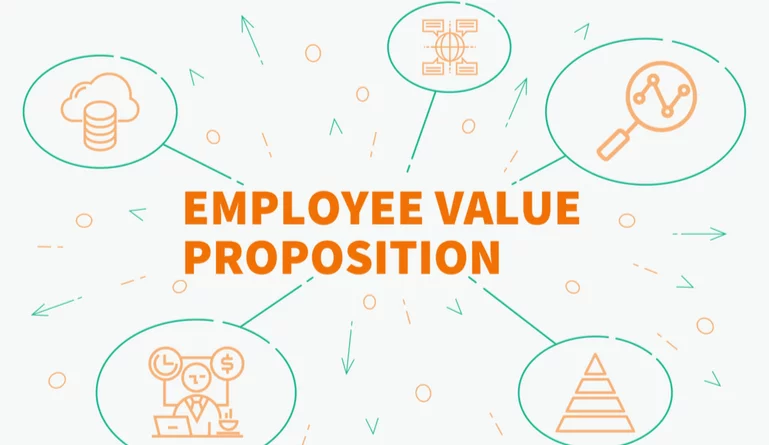The Employee Value Proposition (EVP) is a strategic tool used by organizations to attract, engage, and retain talented employees. It encompasses the unique set of offerings, benefits, and opportunities that an employer provides to its employees in exchange for their skills, experience, and commitment. The EVP helps create a positive employer brand and differentiate the organization from its competitors in the job market.
Here’s what you need to know about the Employee Value Proposition:
- Definition: The EVP is the overall value and benefits that employees receive by working for a particular organization. It goes beyond just salary and includes elements such as compensation packages, work-life balance, career development opportunities, company culture, organizational values, and other tangible and intangible rewards.
- Attraction and Retention: A strong EVP helps attract top talent to an organization by showcasing the unique aspects that make it an attractive place to work. It also plays a crucial role in retaining existing employees by providing a compelling reason for them to stay and be engaged with their work.
- Alignment with Organizational Goals: The EVP should align with the organization’s mission, vision, and strategic objectives. It should reflect the company’s culture, values, and desired employee behaviors. This alignment ensures that employees are motivated and committed to contributing to the organization’s success.
- Customization: EVP elements can vary depending on the organization, industry, and target talent pool. It is important to understand the needs, preferences, and aspirations of the desired employee segments and tailor the EVP accordingly. For example, a tech startup might emphasize innovation and flexible work arrangements, while a traditional manufacturing company might focus on stability and long-term career growth.
- Communication: Effectively communicating the EVP is essential for its success. Organizations should clearly articulate their EVP to potential candidates during the recruitment process and reinforce it through various communication channels such as company websites, social media, job postings, and internal communication platforms. Consistent and transparent messaging helps build trust and authenticity.
- Employee Experience: The EVP is closely linked to the overall employee experience within the organization. It should encompass all stages of the employee lifecycle, from attracting and onboarding new employees to developing and retaining existing ones. A positive and fulfilling employee experience reinforces the EVP and fosters employee engagement and loyalty.
- Measuring Success: Evaluating the effectiveness of the EVP is crucial to making improvements and ensuring its continued relevance. Metrics such as employee satisfaction surveys, retention rates, employee referrals, and employer branding surveys can provide insights into how well the EVP is resonating with employees and potential candidates.
In summary, the Employee Value Proposition represents the unique value and benefits that an organization offers to its employees. It helps attract and retain top talent, aligns with the organization’s goals, and creates a positive employer brand. Effective communication, customization, and continuous evaluation are essential for a successful EVP.
Became a Certified HR Professional. Join Next Innovation Asia, The best HR Training Institute in chennai, we offering Practical HR Courses with Assured Job Support.
Join us to grow your career in HR Domain

